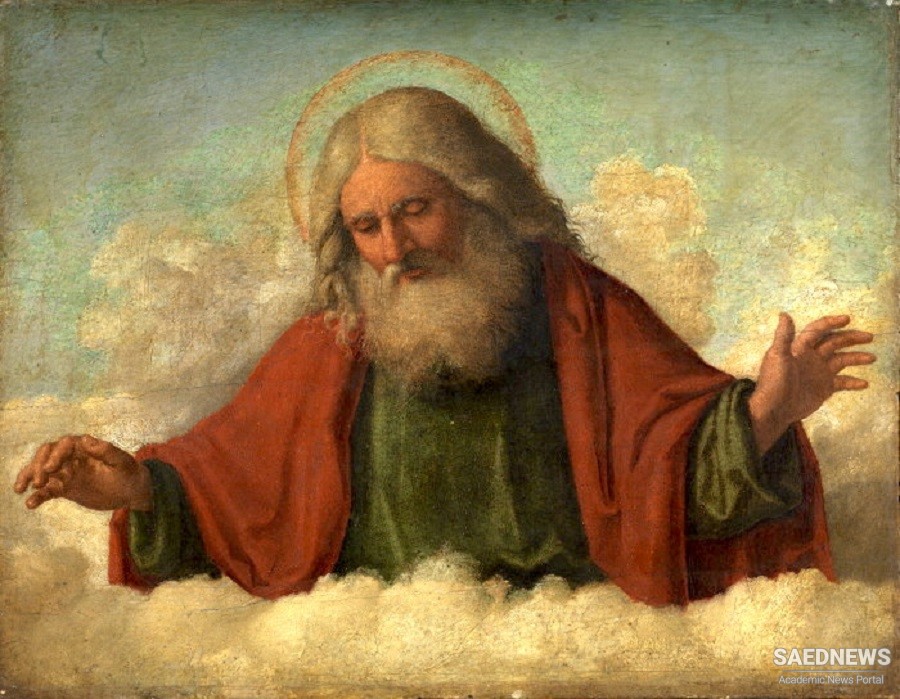He was too exalted for an inadequate human cult. Gradually he faded from the consciousness of his people. He had become so remote that they decided that they did not want him any more. Eventually he was said to have disappeared. That, at least, is one theory, popularised by Father Wilhelm Schmidt in The Origin of the Idea of God, first published in 1912. Schmidt suggested that there had been a primitive monotheism before men and women had started to worship a number of gods. Originally they had acknowledged only one Supreme Deity, who had created the world and governed human affairs from afar.
Belief in such a High God (sometimes called the Sky God, since he is associated with the heavens) is still a feature of the religious life in many indigenous African tribes. They yearn towards God in prayer; believe that he is watching over them and will punish wrong-doing. Yet he is strangely absent from their daily lives: he has no special cult and is never depicted in effigy. The tribesmen say that he is inexpressible and cannot be contaminated by the world of men. Some people say that he has 'gone away'.
Anthropologists suggest that this God has become so distant and exalted that he has in effect been replaced by lesser spirits and more accessible gods. So too, Schmidt's theory goes, in ancient times, the High God was replaced by the more attractive gods of the Pagan pantheons. In the beginning, therefore, there was One God. If there is so, then monotheism was one of the earliest ideas evolved by human beings to explain the mystery and tragedy of life. It also indicates some of the problems that such a deity might have to face.
It is impossible to prove this one way or the other. There have been many theories about the origin of religion. Yet it seems that creating gods is something that human beings have always done. When one religious idea ceases to work for them, it is simply replaced. These ideas disappear quietly, like the Sky God, with no great fanfare. In our own day, many people would say that the God worshipped for centuries by Jews, Christians and Muslims has become as remote as the Sky God.
Some have actually claimed that he has died. Certainly he seems to be disappearing from the lives of an increasing number of people, especially in Western Europe. They speak of a 'God-shaped hole' in their consciousness where he used to be, because, irrelevant though he may seem in certain quarters, he has played a crucial role in our history and has been one of the greatest human ideas of all time. To understand what we are losing - if, that is, he really is disappearing - we need to see what people were doing when they began to worship this God, what he meant and how he was conceived. To do that we need to go back to the ancient world of the Middle East where the idea of our God gradually emerged about 14,000 years ago.
One of the reasons why religion seems irrelevant today is that many of us no longer have the sense that we are surrounded by the unseen. Our scientific culture educates us to focus our attention on the physical and material world in front of us. This method of looking at the world has achieved great results. One of its consequences, however, is that we have, as it were, edited out the sense of the 'spiritual' or the 'holy' which pervades the lives of people in more traditional societies at every level and which was once an essential component of our human experience of the world.
In the South Sea Islands, they call this mysterious force mana; others experience it as a presence or spirit; sometimes it has been felt as an impersonal power, like a form of radioactivity or electricity. It was believed to reside in the tribal chief, in plants, rocks or animals. The Latins experienced numina (spirits) in sacred groves; Arabs felt that the landscape was populated by the jinn. Naturally people wanted to get in touch with this reality and make it work for them, but they also simply wanted to admire it. When they personalise the unseen forces and made them gods, associated with the wind, sun, sea and stars but possessing human characteristics, they were expressing their sense of affinity with the unseen and with the world around them.


 The Other Face of God: Seeing the Divine from the Perspective of Wisdom
The Other Face of God: Seeing the Divine from the Perspective of Wisdom














































